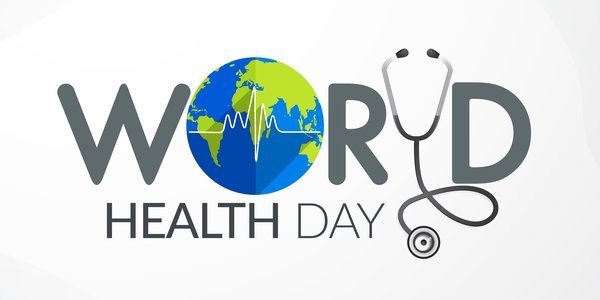Rajiv Kumar Gupta
Are we able to reimagine a world where clean air, water and food are available to all?
Where economies are focused on health and well-being?
Where cities are liveable and people have control over their health and the health of the planet?
World Health Day is celebrated annually and each year draws attention to a specific health topic of concern to people all over the world. The date 7th April marks the anniversary of the founding of WHO in 1948.The celebration has aimed to create awareness of a specific health theme to highlight a priority area of concern for the World Health Organization.
World Health Day is a global campaign, inviting everyone from global leaders to the public in all countries to focus on a single health challenge with global impact. Focusing on new and emerging health issues, World Health Day provides an opportunity to start collective action to protect people’s health and well-being.
The theme for 2022 is ‘Our planet, our health’. In the midst of a pandemic, a polluted planet, and increasing diseases like cancer, asthma and heart disease, WHO will focus global attention this World Health Day 2022 on urgent actions needed to keep humans and the planet healthy and foster a movement to create societies focused on well-being. The climate crisis is the single biggest health threat facing humanity.
While humans contribute to environmental degradation with unsustainable behavioural patterns, we can and must also be part of the solution when it comes to addressing the single biggest health threat that humanity faces – The climate crisis.
Our political, social and commercial decisions are driving the climate and health crisis. Over 90% of people breathe unhealthy air resulting from burning of fossil fuels.Rising temperatures, floods and extreme rainfall are all ways in which climate change is impacting the lives of millions of people globally. Rising temperatures due to climate change cause headaches, confusion, tiredness and vomiting. Extreme heat can cause organ failure and even death .Climate change is having stronger and longer-lasting impacts on people’s mental health and psychosocial well-being.
A heating world is seeing mosquitos spread diseases farther and faster than ever before,Dengue cases reported to WHO have increased over 8-fold in the last 20 years, to over 5 million cases annually. Climate change may put more than 2 billion additional people at risk of dengue infection. At the same time, other human-caused health threats like air pollution, ecosystem degradation, and the production and consumption of tobacco are exacerbating the damage to our planet. As per the global health statistics, Air pollution kills 13 people every minute due to lung cancer, heart disease and strokes, Nine out of ten people breathe polluted air. Around 3.6 billion people lack safe toilets globally, Untreated human waste thus generated degrades ecosystems and human health. Almost 2 billion people lack safe drinking-water globally and every year 8,29,000 people die of diarrhoeal diseases caused by polluted water and poor sanitation.Globally, 1 in 4 health-care facilities lacks basic water services.
One in 3 lacks what is needed to clean hands at the point of care, one in 10 has no sanitation services, one in 3 lacks a system to segregate waste.
Nitrogen dioxide pollution can aggravate respiratory diseases, particularly asthma thus, well planned public transport systems, including safe walking and cycling, can improve air quality, mitigate climate change, and deliver additional health gains.Pollution and plastics are found at the bottom of our deepest oceans, the highest mountains, and have made their way into our food chain. Systems that produce highly processed, unhealthy foods and beverages are driving a wave of obesity, increasing cancer and heart disease while generating a third of global greenhouse gas emissions. All these human practices are further pushing our ecosystem into disagreeable situation.
COVID-19 pandemic highlighted the inequities in the world. There is a dissimilitude in economy, health and power across the globe. The pandemic has revealed weaknesses in all areas of society and underlined the urgency of creating sustainable well-being societies, committed to achieving equitable health now and for future generations without breaching ecological limits.
The present design of the economy leads to inequitable distribution of income, wealth and power, with too many people still living in poverty and instability. Vision to achieve a healthy planet with well-being societies, where every individual will be able to live a healthy life requires legislative action, corporate reform and individuals to be supported and incentivized to make healthy choices.
WHO is calling on everyone to reimagine a world where clean air, water and food are available to all, where economies are focused on planetary and human health and well-being, and where healthy, people-centred cities, villages and communities create conditions for people to lead better lives.
(The author is professor and head Community medicine GMC, Jammu)
Trending Now
E-Paper


